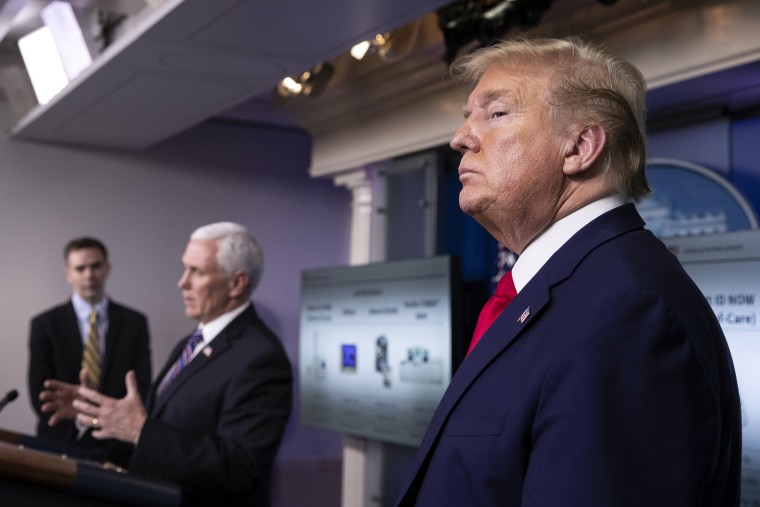Looking back at the rhetoric Donald Trump and his team used in January and February, two related observations stand out: (1) they consistently downplayed the seriousness of the threat; and (2) they made a bunch of predictions that didn't pan out.
In late March, Dana Milbank wrote a rather brutal column on this, tying together many of the president's earlier declarations, each of which appear cringe-worthy in hindsight: "The coronavirus is very much under control in the USA. We have it totally under control. I'm not concerned at all. It's one person coming in from China. We pretty much shut it down.... We're in great shape. Doesn't spread widely at all in the United States because of the early actions that myself and my administration took. There's a chance it won't spread. It's something that we have tremendous control over. Looks like by April, you know, in theory, when it gets a little warmer, it miraculously goes away. One day it's like a miracle, it will disappear."
Let's also not forget that on Feb. 26, Trump told the public, "[W]hen you have 15 people, and the 15 within a couple of days is going to be down to close to zero, that's a pretty good job we've done."
With a track record like this one, the White House ought to, among other things, approach the near future with a great deal of humility. In fact, common sense, not to mention common decency, suggests Team Trump ought to focus on the task at hand -- and resist the urge to make a new round of dubious predictions.
And yet, these guys just can't seem to help themselves.
Vice President Mike Pence, for example, told the Wall Street Journal yesterday, "We truly do believe as we move forward, with responsibly beginning to reopen the economy in state after state around the country, that by early June, we could be at a place where this coronavirus epidemic is largely in the past."
At yesterday's White House press briefing, Trump was equally eager to tell everyone what to expect in the coming months.
"[I]f it comes back ... it won't be coming back in the form that it was. It will be coming back in smaller doses that we can contain.... We will not go through what we went through for the last two months.... It is estimated it might not come back at all."
First, the whole idea of reflecting on whether or not the deadly virus is going to "come back" is ridiculous when it's still here. Thousands of Americans are still dying from the virus every day.
Second, not only are public-health experts taking issue with the president's post-policy optimism, but at the same press briefing, members of the White House's own coronavirus team contradicted Trump's happy talk from the dais. Not long after the president said the coronavirus "may not come back at all," Dr. Anthony Fauci explicitly told reporters, "There will be coronavirus in the fall."
And finally, for the love of all that is good in the world, why offer happy-talk predictions at all? Have the last couple of months taught Trump nothing?
